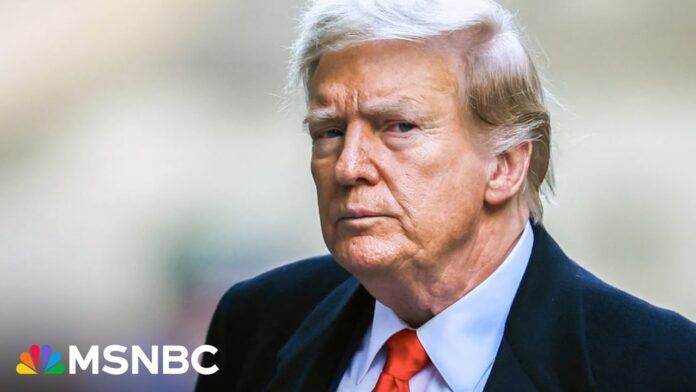Former President Donald Trump secures a bond through Knight Specialty Insurance Company as he seeks to overturn a civil fraud verdict
Former President Donald Trump, in a notable move within the legal realm, has successfully posted a $175 million bond related to a civil fraud case in New York, marking a critical step in his ongoing legal battles. This development follows an appellate court decision to lower the bond required, initially set in the wake of a substantial $464 million judgment against Trump, his adult sons, and former executives of the Trump Organization.
The bond, secured through Knight Specialty Insurance Company, represents Trump’s commitment to challenging the verdict. Alina Habba, Trump’s attorney, conveyed the former president’s determination to overturn what he deems an unjust verdict, stating, “As promised, President Trump has posted bond. He looks forward to vindicating his rights on appeal.”
The adjustment to the bond amount came after Trump’s legal team argued that the initial figure was beyond their client’s immediate financial capability, having been reportedly rejected by over 30 bond companies. This legal manoeuvring aims to prevent the potential sale of Trump’s assets, including significant properties bearing his name, as he pursues an appeal against the fraud ruling.
The case against Trump and his co-defendants unfolded over a three-month trial, culminating in February when Judge Arthur Engoron imposed fines for what he identified as a decade-long pattern of business fraud. This fraud involved the inflation of Trump’s net worth to secure favourable loans and business deals. Engoron’s ruling emphatically noted, “The frauds found here leap off the page and shock the conscience.”
Despite the ruling, Trump has maintained his innocence, challenging the verdict through his legal team. The defence argues against the calculation of the disgorgement amount, deeming it unconstitutional, disproportionate, and inaccurately applied, particularly concerning the statute of limitations on Trump’s conduct. Moreover, they contend that the New York Attorney General Letitia James has not conclusively demonstrated that the alleged misrepresentations materially impacted the terms of loans and policies issued to Trump and his entities.
Should the appeal not result in a favourable outcome for Trump and his co-defendants, they would be liable for the entire $464 million judgment. In such an event, Trump’s inability to cover the judgment could lead to the seizure of his assets by New York Attorney General Letitia James, who has expressed readiness to ensure the judgment’s enforcement.
This situation is not isolated in Trump’s array of legal challenges. In a separate defamation case brought by writer E. Jean Carroll, Trump also secured a $92 million bond through insurance company Chubb, following a jury’s finding against him. Trump has appealed that case as well, underlining a series of legal confrontations facing the former president.
As these legal proceedings evolve, Trump’s actions and the judicial system’s responses remain under intense public scrutiny, reflecting the complex intersection of high-profile personalities and the law.
